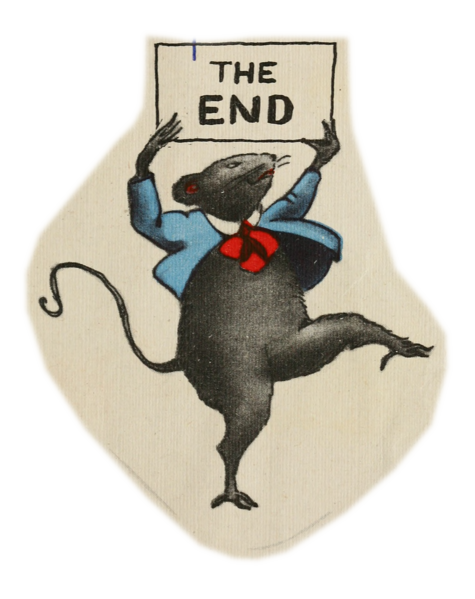photo: “The End” of The Story of a Little Gray Mouse, by Dorothy Sherrill
A good book for people who are giving themselves the hives imagining the ridiculous questions that they might, someday, be asked about their own work at a Q&A session–because most of us won’t be asked anything so ridiculous as Davis was probably asked after her readings of this book. A fictional essay, a What We Talk About When We Talk About Writing Love Stories kind of story. How do we begin talking about a _____ (fill in the blank: a love affair, say), and how do we end? How do emotions graph or not graph onto how we choose to be portraying them, and how we are feeling about them, over time, which is the necessary component to any written work or any emotional experience? What is memory?
I liked questions it asks and the ambitions and risks that went into its construction, although, in terms of enjoyment, I got less than from most of her collections of stories, which ask provocative things but have delivered a lot more pleasure to me. The novel form gave Davis the opportunity to work with time and memory in a way she couldn’t have done in a short story. Ultimately, though, I felt that the limitations stood out more than the opportunities. I wonder if the novel of boredom has already been done to death, while the short story of boredom, of which Davis is a master, still has a lot of potential (because the tension between boredom and enjoyment of boredom can be wrought more finely)?
Read: February 2010
